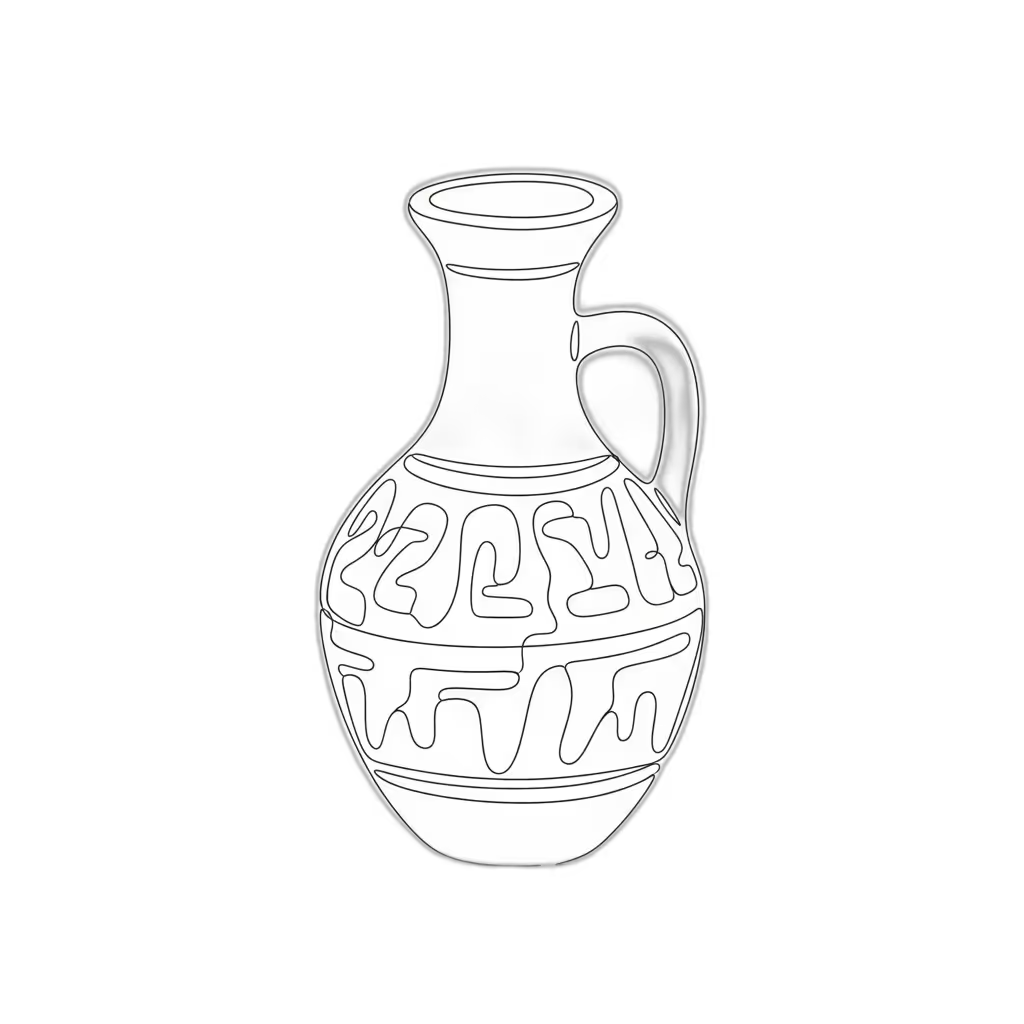






5-Star Valuation Services, Loved by Hundreds
Frequently Asked
Questions
No Frequently Asked Questions Found.
A trust is a sophisticated legal arrangement where a designated trustee manages assets on behalf of specified beneficiaries. This mechanism offers remarkable flexibility in asset management and distribution. Unlike traditional inheritance methods, trusts can be strategically crafted during one's lifetime or established posthumously. Their primary advantages include circumventing complex probate processes, implementing nuanced asset distribution strategies, potentially reducing tax liabilities, and creating specialized financial protections for vulnerable beneficiaries.
Wills, in contrast, represent a more straightforward legal declaration of an individual's final wishes regarding asset distribution. While they must navigate the probate court system, wills remain fundamental in outlining explicit instructions about asset allocation, naming guardians for minor children, and designating executors responsible for estate administration.
The intersection of trusts and wills lies in their shared objective: providing clear, legally binding guidance for asset management and transfer. Each document offers unique mechanisms for protecting family interests, managing financial legacies, and ensuring that an individual's intentions are honored with precision and legal validity.
Ultimately, effective estate planning requires thoughtful consideration of personal circumstances, family dynamics, financial complexity, and long-term goals. By understanding the distinctive roles and potential of trusts and wills, individuals can construct comprehensive strategies that provide financial security and peace of mind for themselves and their beneficiaries.
The primary objective of such an appraisal is to ensure accurate asset valuation, which serves multiple critical purposes. Trustees and beneficiaries gain a clear understanding of the true worth of estate assets, which is essential for making informed decisions about distribution, tax planning, and long-term financial strategy.
Typically, these appraisals cover a wide range of assets, including real estate, personal property, business interests, and investment portfolios. Each asset undergoes a meticulous evaluation that considers multiple factors such as market conditions, asset condition, location, and current economic trends.
Qualified appraisers conduct an in-depth analysis that involves extensive research, market comparisons, and detailed documentation. Their comprehensive reports provide a reliable foundation for trustees to manage the estate effectively, minimize potential disputes, and ensure compliance with legal and tax requirements.
By delivering an accurate and unbiased valuation, Trust & Will appraisals help preserve the grantor's intentions, facilitate fair asset distribution, and provide clarity during what can often be a complex and emotional process of estate management.
An artwork appraisal represents a comprehensive professional evaluation that precisely determines the monetary and historical value of an art piece. This meticulous process involves expert assessment of multiple intricate factors that collectively influence an artwork's market worth and significance.
Professional art appraisers employ a sophisticated methodology that examines critical elements such as the artwork's provenance, authenticity, physical condition, current market dynamics, and the artist's reputation. Each of these components plays a crucial role in establishing an accurate and defensible valuation.
The evaluation goes far beyond a simple price assessment. Appraisers conduct detailed investigations that may include forensic analysis of materials, historical research into the artwork's origins, and careful examination of minute details that can substantiate or challenge the piece's perceived value. They leverage extensive knowledge of artistic styles, market trends, and collector interests to provide a nuanced understanding of an artwork's worth.
Different stakeholders rely on artwork appraisals for diverse purposes, including insurance documentation, estate planning, potential sale transactions, and tax compliance. The appraisal serves as an authoritative document that provides clarity and confidence for collectors, institutions, and potential buyers.
The complexity of art valuation requires a sophisticated approach that balances objective analysis with deep understanding of artistic and market contexts. A comprehensive appraisal not only quantifies monetary value but also captures the intrinsic cultural and historical significance of the artwork.
Online artwork appraisals have become increasingly sophisticated, offering art owners a convenient and comprehensive method to determine the value of their pieces. The process typically begins with submitting high-resolution photographs that capture essential details of the artwork. Professional appraisers carefully analyze these images, examining critical aspects such as condition, artistic technique, and distinctive characteristics.
Beyond visual documentation, appraisers collect contextual information through digital communication channels. Owners provide supplemental details about the artwork's provenance, artist background, and historical significance, which help create a more nuanced valuation. This collaborative approach allows for a thorough assessment without the constraints of physical proximity.
Live video consultations have emerged as an innovative component of online art appraisals. Using platforms like Zoom or Google Meet, appraisers can engage directly with clients, rotating artwork, examining specific details, and conducting real-time discussions. This interactive method bridges the gap between digital and in-person assessment, enabling a more dynamic and comprehensive evaluation.
The digital appraisal process offers substantial benefits, including accessibility for individuals in remote locations, flexibility for busy clients, and reduced logistical complexities. Professional appraisers maintain rigorous standards, ensuring that online evaluations are as meticulous and credible as traditional in-person assessments.
Modern technology has transformed artwork appraisals, creating a streamlined, efficient approach that meets the evolving needs of art collectors and owners. By leveraging digital tools and professional expertise, online appraisals provide accurate, comprehensive valuations with unprecedented convenience.
Artwork appraisers are specialized professionals who meticulously assess the value of diverse art forms. Their expertise spans multiple domains, each requiring unique skills and deep knowledge of artistic markets, historical context, and aesthetic evaluation.
Fine art appraisers concentrate on traditional art mediums like paintings, sculptures, and drawings. These experts possess comprehensive understanding of art movements and market dynamics, often developing profound specialization in specific periods such as Impressionism or Contemporary art.
Decorative art appraisers evaluate functional artistic items including furniture, ceramics, glassware, and textiles. Their assessments consider craftsmanship, material quality, historical significance, and provenance, making them invaluable to collectors and antique dealers seeking precise valuations.
Digital art appraisers represent an emerging professional category addressing the rapidly evolving technological art landscape. They specialize in evaluating digital creations, graphic designs, digital paintings, and emerging formats like NFTs, reflecting the dynamic nature of contemporary artistic expression.
Antique appraisers focus on artworks exceeding 100 years in age, conducting thorough examinations that extend beyond aesthetic value. They scrutinize historical importance, authenticity, and originality, distinguishing genuine historical pieces from reproductions and potential forgeries.
Specialty appraisers develop expertise in distinct artistic niches, concentrating on specific artists, regional styles, or unique media such as photography or limited edition prints. Their targeted knowledge enables nuanced, precise valuations within specialized artistic domains.
Institutional appraisers employed by museums, galleries, and cultural organizations perform critical valuation services for collections, exhibitions, and acquisitions. Operating under rigorous ethical standards, they provide essential assessments for insurance, donation, estate planning, and cultural preservation purposes.
Artworks transcend mere visual appeal, representing significant financial and emotional investments. Professional appraisals provide critical insights that extend far beyond simple price determination, serving multiple strategic purposes for art owners.
Insurance protection stands as a primary motivation for artwork appraisals. Without accurate documentation, collectors risk inadequate compensation during loss, theft, or damage scenarios. Precise valuations enable insurance companies to establish appropriate coverage, ensuring financial security for valuable pieces.
Estate planning represents another crucial context for art appraisals. When transferring assets between generations, comprehensive valuations help establish fair market values, potentially mitigating potential tax complications and familial disputes. Executors and heirs gain clarity about the financial landscape of inherited artwork collections.
Charitable donations also benefit from professional appraisals. For artwork valued over specific thresholds, formal assessments become essential for claiming tax deductions. These documentations provide nonprofits with transparent understanding of donated asset values while offering potential tax advantages to donors.
Preparing for potential sales requires nuanced market understanding. Appraisals illuminate current market trends, helping owners set competitive pricing strategies. Whether considering auction placement or private sale, comprehensive evaluations empower informed decision-making.
Investment portfolios increasingly recognize art as a valuable asset class. Professional appraisals help collectors assess artwork's financial potential, tracking appreciation and understanding long-term value trajectories. These insights support sophisticated wealth management approaches.
Authenticity verification represents an often-overlooked yet critical appraisal benefit. Reputable assessments not only determine monetary value but also confirm artwork provenance, protecting collectors from potential fraud and enhancing piece legitimacy.
Ultimately, artwork appraisals represent more than financial transactions—they are comprehensive explorations of cultural, historical, and monetary significance. By bridging emotional attachment and strategic financial planning, professional evaluations offer collectors comprehensive perspectives on their artistic investments.
Why Artwork Valuation Matters in Estate Planning
Artwork valuation is a critical aspect of comprehensive estate planning, extending far beyond simple monetary assessment. By understanding the nuanced role of art in estate management, individuals can make informed decisions that protect their legacy and provide clarity for future generations.
Key Reasons Artwork Valuation Matters
- Establishing Fair Market Value
A professional appraisal provides an objective assessment of artwork value, which is essential for:
- Equitable distribution among heirs
- Preventing potential family disputes
- Ensuring transparent asset allocation
- Tax Planning and Compliance
Accurate artwork valuation is crucial for navigating complex tax landscapes:
- Precise IRS reporting requirements
- Potential tax liability mitigation
- Strategic estate tax planning
- Comprehensive Asset Protection
Professional appraisals offer multifaceted protection through:
- Appropriate insurance coverage
- Documentation of artwork authenticity
- Detailed provenance verification
- Charitable Contribution Planning
Accurate valuations facilitate strategic philanthropic decisions by:
- Enabling potential tax deductions
- Ensuring IRS compliance
- Supporting meaningful legacy planning
The Comprehensive Value of Art Appraisals
Beyond financial considerations, artwork appraisals represent a sophisticated approach to estate management. They transform art from a mere possession into a strategic asset that can be carefully preserved, transferred, and potentially leveraged for broader family financial goals.
By investing in professional artwork valuation, individuals demonstrate foresight and commitment to transparent, responsible estate planning that honors both the financial and emotional significance of their art collections.
Types of Artwork Commonly Appraised for Trusts
Types of Artwork Commonly Evaluated for Trust Purposes
Understanding the diverse categories of artwork appraised for trusts is critical for accurate asset valuation and strategic estate planning. An art appraisal provides a precise monetary assessment of pieces that may carry significant emotional, historical, or cultural significance, facilitating equitable asset distribution among beneficiaries.
Key Artwork Categories for Trust Appraisals
- Paintings
- Oil Paintings: Spanning from classic masterpieces to contemporary works, these remain a primary focus in art appraisals
- Watercolors: Delicate mediums requiring specialized handling, often possessing substantial artistic and monetary value
- Sculptures
- Encompassing diverse materials including bronze, wood, and mixed media
- Value determined by artist reputation, craftsmanship, and artistic innovation
- Prints and Lithographs
- Original prints and limited edition works
- Value influenced by artist prominence and print rarity
- Fine Art Photography
- Valued based on photographer's reputation
- Limited editions and historical significance enhance monetary worth
- Decorative Arts
- Includes ceramics, glasswork, and furniture
- Historical provenance and stylistic significance critically impact valuation
- Textile Art
- Encompasses tapestries, quilts, and specialized fabric artwork
- Cultural significance and craftsmanship determine artistic and monetary value
Professional Considerations
Engaging qualified art appraisers is essential for comprehensive trust planning. Professional assessments provide nuanced insights into artwork valuation, ensuring accurate asset representation and supporting strategic estate distribution objectives.
How Do Artwork Appraisals Protect Your Legacy?
Artwork appraisals are a critical component in preserving and protecting your family's artistic legacy, particularly when establishing trusts and wills. By obtaining a professional assessment, you create a clear and transparent framework for asset distribution that can prevent potential conflicts among beneficiaries.
Key Benefits of Artwork Appraisals
- Financial Clarity: Precise valuations provide an accurate snapshot of your art collection's worth
- Estate Planning Protection: Helps mitigate potential tax liabilities and legal complications
- Family Harmony: Reduces potential disputes by establishing definitive asset values
Strategic Importance in Estate Planning
Professional artwork appraisals serve multiple critical functions in comprehensive estate management:
- Tax Compliance: Accurate valuations ensure proper estate tax calculations and reporting
- Asset Documentation: Creates an official record of your art collection's current market value
- Inheritance Preparation: Provides clear guidance for equitable asset distribution
Preserving Artistic and Personal Legacy
Beyond financial considerations, artwork appraisals help maintain the intrinsic value and story behind your collection. They transform art from mere objects into documented family heritage, ensuring that future generations understand both the monetary and emotional significance of each piece.
Long-Term Collection Management
Art collections frequently appreciate over time, making periodic professional appraisals crucial. These assessments not only track potential value increases but also provide a comprehensive understanding of your collection's evolving market position.
By investing in professional artwork appraisals, you're taking a proactive step in protecting your family's artistic legacy, ensuring financial transparency, and creating a lasting narrative that extends far beyond monetary value.
Essential Factors That Determine Artwork Value
Understanding Art Valuation Factors
Determining the value of artwork involves a nuanced evaluation of multiple critical elements. When preparing documentation for trusts and wills, a comprehensive understanding of these factors becomes essential.
Key Determinants of Artwork Value
- Artist Reputation
- Established artists typically command higher prices
- Emerging artists may show potential future appreciation
- Career trajectory and historical market performance are crucial
- Provenance
- Documented ownership history adds significant credibility
- Previous exhibitions and prestigious collections enhance value
- Authenticity verification through comprehensive documentation
- Physical Condition
- Well-preserved artworks maintain higher market value
- Assessment of potential damage or restoration impacts
- Professional conservation status critical for valuation
- Artistic Medium and Technique
- Different mediums carry varying market values
- Oil paintings often more valuable than works on paper
- Unique or innovative techniques can increase artwork worth
- Current Market Dynamics
- Art market trends fluctuate continuously
- Periodic reassessment of artwork value recommended
- Contemporary collector interests significantly influence pricing
- Physical Dimensions
- Larger artworks often command higher prices
- Visual impact and spatial presence factor into valuation
- Size considerations vary by artistic genre and medium
Comprehensive Valuation Approach
A thorough art appraisal requires careful consideration of these interconnected factors. Professional evaluation ensures accurate documentation for trust and will purposes, providing a comprehensive understanding of an artwork's true market value.
The Expertise Behind Accurate Art Valuations
Understanding Art Valuation for Estate Planning
Art appraisals are critical in trust and will preparations, serving as a precise method to determine an artwork's financial and historical value. The process goes far beyond a simple price estimate, encompassing multiple sophisticated evaluation techniques.
Key Components of Professional Art Appraisal
- Provenance Assessment: Investigating the artwork's complete ownership history
- Condition Evaluation: Thoroughly examining the physical state of the artwork
- Market Trend Analysis: Understanding current art market dynamics
- Expert Credentialing: Utilizing certified professionals with specialized knowledge
Why Precision Matters
Accurate art valuations are essential for:
- Preventing potential beneficiary disputes
- Ensuring proper tax liability calculations
- Protecting the financial integrity of estate planning
- Preserving the artwork's true historical and monetary value
Professional Appraisal Methodology
Certified art appraisers employ a comprehensive approach that includes:
- Detailed market research
- In-depth condition reporting
- Comprehensive documentation of artwork characteristics
- Analysis of recent auction and private sale results
By combining rigorous professional expertise with comprehensive research, art appraisers provide invaluable insights that support accurate estate planning and asset management.
Navigating Legal Complexities in Art Appraisals
Understanding Legal Complexities in Art Appraisals
Navigating the legal landscape of art appraisals for trusts and wills requires a strategic and comprehensive approach. Several critical factors can significantly impact the accuracy and legal defensibility of an art valuation.
Key Considerations in Legal Art Appraisals
- Appraisal Purpose: The specific context of the appraisal fundamentally shapes its methodology and requirements
- Legal Standards: Different jurisdictions may have unique guidelines for art valuation
- Market Sensitivity: Art values can fluctuate based on current market conditions
Critical Elements of a Legally Robust Art Appraisal
- Precise Objective Identification
Clearly define the appraisal's purpose, whether for: • Estate planning • Tax reporting • Equitable asset distribution • Inheritance allocation
- Professional Expertise
Select an appraiser with specialized knowledge in: • Estate law • Art market dynamics • Valuation methodologies
- Comprehensive Documentation
Develop a detailed report including: • Artwork description • Complete provenance • Current condition assessment • Relevant market comparables • Precise valuation methodology
Strategic Recommendations
Engaging legal counsel early in the appraisal process can provide critical insights and ensure compliance with complex legal requirements. This collaborative approach helps create a robust, defensible valuation that protects the interests of all parties involved.
A meticulously prepared art appraisal serves not just as a financial document, but as a comprehensive legal instrument that accurately represents the artwork's true value and historical significance.
When and Why You Need a Professional Art Appraisal
Managing estates, establishing trusts, or drafting wills requires precise artwork valuation. A professional art appraisal provides critical insights that can save time and prevent potential conflicts among heirs.
Key Scenarios Requiring Art Appraisals
- Estate Settlement: When an individual passes away, art collections can represent substantial estate assets. Professional appraisals ensure equitable asset distribution and legal compliance, preventing potential disputes among beneficiaries.
- Tax Planning: Art values fluctuate continuously. Reliable appraisals are essential for:
- Accurately calculating estate taxes
- Minimizing potential tax liabilities
- Providing documented proof of artwork value
- Charitable Donations: Documented appraisals support tax deductions for artwork donations to museums, cultural institutions, and charitable organizations, ensuring both parties understand the artwork's fair market value.
- Insurance Coverage: Comprehensive art appraisals help insurers:
- Determine appropriate coverage amounts
- Protect against potential loss or damage
- Align insurance values with current market conditions
- Comprehensive Estate Planning: Precise valuations prevent potential conflicts by clearly defining artwork distribution and value within estate plans.
Art Market Dynamics
The art market is inherently complex and constantly evolving. Professional appraisers offer crucial insights into current market trends, enabling informed decision-making about artistic investments, preservation, and potential transactions.
Why Professional Expertise Matters
Art appraisals require specialized knowledge that goes beyond simple price estimation. Experienced appraisers consider multiple factors, including:
- Historical significance
- Artist reputation
- Artwork condition
- Current market trends
- Provenance and documentation
By leveraging professional appraisal services, individuals can navigate the intricate landscape of art valuation with confidence and precision.
Preparing Your Artwork for a Comprehensive Valuation
Comprehensive Artwork Valuation Preparation Guide
Preparing your artwork for a comprehensive valuation requires a strategic and methodical approach. By carefully gathering information and presenting your artwork professionally, you can ensure a more accurate assessment of its value.
1. Thorough Documentation
Compile a comprehensive collection of critical artwork documentation:
- Original purchase receipts
- Verified certificates of authenticity
- Detailed provenance records
- Previous professional appraisals
These documents provide essential context about the artwork's history and potential value determinants.
2. Comprehensive Condition Assessment
The artwork's physical condition plays a crucial role in determining its value. Conduct a meticulous examination for potential issues:
- Surface scratches
- Color fading
- Paint deterioration
- Structural damage
- Staining or discoloration
For significant condition concerns, consult a professional art conservator who can provide expert restoration recommendations.
3. Detailed Visual Documentation
Capture comprehensive photographic evidence of the artwork:
- High-resolution images from multiple angles
- Detailed close-ups of signatures
- Frame and mounting documentation
- Unique identifying features
Accompany photographs with a thorough description including artist details, artwork title, medium, dimensions, and relevant historical context.
4. Market Context Research
Develop a nuanced understanding of the artwork's market positioning:
- Research recent sales of similar artworks
- Analyze current market trends
- Investigate the artist's current market reputation
- Understand potential value fluctuations
5. Professional Appraiser Selection
Choose an appraiser with specialized expertise:
- Verify professional credentials
- Confirm specialized experience in artwork type
- Check professional affiliations
- Review past valuation portfolios
By implementing these strategic steps, you'll create a comprehensive preparation process that maximizes the potential for an accurate and thorough artwork valuation.
Understanding the Investment in Professional Appraisal Services
The Value of Professional Artwork Appraisal in Trust and Will Planning
Professional artwork appraisal is a critical component of comprehensive estate planning, offering far-reaching benefits that extend beyond simple valuation.
Key Functions of Professional Artwork Appraisals
- Trust and Estate Planning: Provides a transparent, defensible valuation that:
- Prevents potential heir disputes
- Ensures fair asset distribution
- Creates legally substantiated documentation
- Tax Strategy Management: Assists in navigating complex tax landscapes by:
- Accurately determining potential tax liabilities
- Supporting IRS compliance
- Potentially minimizing tax burdens
- Insurance Protection: Enables comprehensive coverage through:
- Precise asset valuation
- Detailed condition assessments
- Protection against potential financial losses
Beyond Basic Valuation
Professional appraisers bring more than just a number to the table. They offer:
- Deep market insights
- Comprehensive market trend analysis
- Expert understanding of artwork provenance
- Detailed condition and authentication reports
The Strategic Importance of Professional Appraisals
A professional artwork appraisal is not an expense, but a strategic investment in:
- Financial clarity
- Risk mitigation
- Informed decision-making
- Long-term asset protection
By securing a professional appraisal, individuals can approach trust and will planning with confidence, ensuring their artwork assets are accurately represented and protected.
Securing Your Family's Financial Future Through Precise Valuation
Art transcends aesthetic appreciation, representing a nuanced financial asset critical to comprehensive estate planning. Understanding the complex role of artwork valuation ensures families can strategically protect and distribute valuable collections.
Key Considerations for Artwork Valuation in Estate Planning
- Fair Asset Distribution: Professional appraisals provide an objective foundation for equitable inheritance allocation, minimizing potential family conflicts
- Dynamic Market Value: Artwork values fluctuate based on market trends, artist reputation, and preservation condition
- Financial Transparency: Precise valuations create clear documentation of asset worth for legal and financial purposes
Critical Valuation Benefits
- Comprehensive Estate Planning
A professional artwork appraisal offers an accurate financial snapshot, enabling strategic estate management and transparent asset distribution.
- Tax Compliance
Documented appraisals assist in navigating complex IRS reporting requirements, potentially mitigating unexpected tax liabilities for beneficiaries.
- Transaction Facilitation
Authenticated valuations streamline potential sales, donations, or transfers, providing credible documentation of artwork's market value.
Long-Term Financial Protection
By investing in professional artwork appraisals, families create a robust framework for preserving generational wealth, ensuring that each artistic asset is appropriately recognized and valuated.
Proactive estate planning through precise artwork valuation transforms art from a personal possession into a strategic financial instrument, safeguarding your family's economic future.
View all Locations
APPRAISEITNOW APPRAISERS ARE BEST-IN-CLASS & CREDENTIALED BY LEADING APPRAISAL ORGANIZATIONS LIKE THE ISA, ASA, & MORE.
























.svg)









